Cloud-based services offer a terrific range of productivity, communication and security solutions for nearly every type of business. Instead of implementing separate IT systems for different functions, cloud software integrates multiple solutions into a streamlined system.
Promote engagement by giving employees remote work options via the cloud.
Cloud-based applications serve as the backbone of the remote work revolution. Most employees now enjoy at least one day a week of working at home, which helps to boost overall engagement.
A study published by Gallup revealed that workers who spend three or four days working from home report the highest engagement ratio at 41%, while those who don’t have the option of working remotely report an engagement of 30%. Interestingly, engagement rises to 36% when employees spend up to 20% of their work week out of the office.
Enable productivity via multiple platforms, including tablets, smartphones and laptops.
Mobile computing devices, including tablets, smartphones and laptops, provide extended productivity options that cater to specific business scenarios. Many companies benefit from implementing tablets and smartphones to staff. These devices provide portable IT productivity in sales, manufacturing, service and other business functions.
Cloud-based services link multiple productivity platforms together under a single system, allowing separate parts to function as a coordinated whole. Instead of employees actively syncing mobile devices with desktops or servers, cloud applications automatically link multiple platforms, including communication functions.
Provide valuable tools for seamless collaboration across multiple projects and departments.
The ability to communicate effectively helps staff work together to achieve desired results. Large projects involving multiple staff from separate departments requires the ability to coordinate efforts. Collaboration on multiple projects increases the complexity of working together. The volume of messages and info shared may quickly spiral out of control.
The cloud helps to establish effective communication channels which streamline messaging and info reports. Cloud computing tools also include the option of automating process previously performed by staff. Instead of separate databases, the cloud links separate sources together, able to automatically transfer vital data from one process to the next – without the help of humans.
Facilitate business agility by implementing quick, easy tech updates.
Business tech is a constantly shifting landscape, including software updates and new processes which must be implemented on a frequent basis. Performing this type of IT task across dozens of computers, servers and mobile devices require a lot of time and patience from staff. This increases the odds of an error while updating or installing new features, with the potential of grinding business to a halt.
Instead of allocating staff for software and IT tasks, you have the option of offloading this type of chore to a cloud-based function which upgrades all applicable hardware automatically. This eliminates the need for multiple employees working on tech upgrades by reducing time-intensive tasks, such as confirming software versions across dozens of computers and devices.
Reinforce disaster recovery plans, preventing data loss in fires, floods and earthquakes.
Data is the backbone of nearly all business. Protecting your data from natural disasters or malicious attacks ensures that you experience minimal disruption during unforeseen scenarios. It’s impossible to predict the future with certainty, but you can control how you prepare for unfortunate events.
Disaster recovery planning for business through cloud-based services creates the ability to quickly rebound from disaster. Off-site servers can rebuild destroyed IT processes and data rapidly and accurately after the main threat passes. Entire databases and IT structures may be backed up in real-time if necessary, avoiding service disruptions during disasters.
The volume of data theft and cyber attacks in the U.S. rose to an all-time high last year, according to Statista research. Managed cloud security services provide protection and disaster recovery that’s no longer an option for business.



